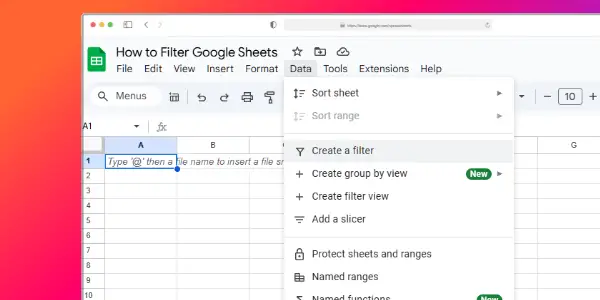Managers are indispensable in any situation, from the home to business, society and government. In business transformation and strategic management, the place of a program manager can never be overemphasized. However, are the duties of a program manager the same as a manager?
Program management is an aspect of general management, making the program manager a manager with specialized duties. Program managers take up leadership positions within an organization and ensure that all other employees meet the company goals by overseeing different interrelated projects under the single umbrella of a program.
Since a program manager is a manager, it raises other questions. For example, what kind of individual makes for a good program manager and are they the same as a project manager?
What Makes a Program Manager a Manager
The ability to manage is an essential quality of anyone in a senior position regardless of their designation, title or office. All managers in an organization are leaders and perform essential fundamental functions with a slight difference in their offices.
For instance, the job descriptions of a program, project, product manager, etc., are similar in terms of the primary role of management yet different in specifics.
As a result, a program manager is a manager because they are leaders and perform some administrative duties in organizing several aspects of the company toward attaining its goals.
What Is a Program Manager in Terms of Management?
A program manager is responsible for program management, a recently popularized approach to creating strategic changes by grouping related projects for execution.
They are also responsible for charting the organization’s big picture and ensuring that employees and team members carry out their duties in line with the company’s vision.
They benefit from strong leadership and people management skills because they function as catalysts for organizational project execution. They are also responsible for managing the project managers who are directly in charge of managing the implementation of specific projects.
In other words, program managers develop initiative strategies to enhance the company’s overall performance and attain its long-term goals.
Fun Fact: Program managers are ranked higher than project managers in the strategic organizational management hierarchy, but project managers were initially at the helm of affairs. Program managers came on board due to the inability of project managers to cover general company goals since they had to focus on specific projects.
A program manager indirectly coordinates multiple projects within the organization without directly managing them.
Instead, they focus on ensuring that all project managers, team members etc., fully understand their duties and obligations within the company. They also ensure that team spirit is maintained in addition to a healthy work environment.
Here is why:
Program managers are more interested in the organization’s main program (a unit of interrelated projects). They include program strategy, project delegation and program implementation.
Program Strategy: refers to a clear set of activities, methods, and know-how to achieve smaller organizational goals by controlling larger matrices (programs) and project delegation.
Project Delegation: refers to the program manager’s ability to distribute smaller projects among project managers according to their skills and expertise.
Program Implementation: involves the program manager’s ability to self-organize toward executing their program strategy and project delegation.
Essentially, program managers assist the company in staying true to its goals and objectives while maintaining steady success by staying on schedule and budget.
What Type of Management Makes a Program Manager a Manager?
OK I’ll admit it, the heading for this section sounds more like a tongue twister than a serious title. Trying saying it 5 times as fast as you can and if you trip over the words you’ve just experienced what it’s like to be a busy programme manager when things go wrong!
Management is the general practice of coordinating the affairs of an organization or situation. It is a vital task requiring several skills significantly different from your professional skills.
For instance, an employee starting a job advances along the organizational hierarchy with accolades for exhibiting service excellence. Then the moment for leadership comes, and the same excellent employee appears to become incompetent for lacking essential managerial skills because of the ‘Peter Principle.’
Few people are instinctively good managers. Management requires a separate set of skills that have nothing to do with your professional skills.
The Peter Principle states that in any hierarchy, when someone reaches a level at which they can perform the job adequately, they are promoted to a position based on that progress rather than the skills required.
Therefore, it is safe to say that there are many aspects or types of management, each requiring a different skill set and responsibilities. Thus, understanding what kind of management makes a program manager a manager instead of a project manager requires some familiarity with various forms or types of management.
If you’re working in a small company you are likely familiar with people having to handle multiple job roles at once. However, as a company grows these roles naturally fill out to require specific individuals. This leads to a lot of management level roles, but they each require slightly different skill sets.
| Forms/Types of Management | Management Scope |
| Program management | The management of an ongoing set/group/portfolio of projects. |
| Project management | The planning/organization/control/execution of tasks/projects. |
| Product management | Coordinating the production of goods and services for sale, and organization of product designs and design process management. |
| Marketing and sales management | Administering sales/marketing strategies, advertising, branding and promotions. |
| Public relations management | Managing communication between the organization and the public through print and online communication channels. |
| Strategic management | Managing the company goals toward sustainability and maintaining a competitive advantage. |
| Operations management | Coordinating the company’s production processes from manufacturing to sales/distribution. |
| Supply chain management | Overseeing how products and services move from the company to the distribution channels to the final consumer. |
| Procurement management | Coordinating how products like raw materials are sourced from external sources. |
| Human resources management | Takes charge of employee management, including hiring, training, and workers’ compensation. |
| Risk management | Focuses on controlling the possible negative results the company might incur due to its operational process. |
| Quality control and assurance | Oversee the maintenance of the company’s goodwill and customer retention by controlling the quality of goods and services to meet standard requirements. |
| Innovation, research and development management | Responsible for creating novel approaches to company processes through research, surveys, and organizational change. |
| Financial and accounting management | Oversee the organization of finances, bookkeeping and accounting processes of the company. |
| Information technology management | Take care of the company’s technical communications and information technology needs. |
As you can see, some elements overlap but with slight differences, like program vs. project management.
What Are the Managerial Duties of a Program Manager?
The program manager in any organization is responsible for ensuring that the projects constituting a program are duly executed. They are more concerned with coordinating the functions of project managers, team leads, etc.
In other words, they are more in tune with people management and strategic planning/management, making their managerial positions pivotal in any organization. Managing a company program isn’t something that lasts a couple of weeks, it can, and should, be a full time position because they are based on strategic implementation.

The aim of running a program is to organise ongoing projects within an organization and drive the realization of significant company goals through innovative strategies for orchestrating transformational organizational change.
Essentially, the duties and responsibilities of program managers are split between their attention to the company programs they manage and attention to the individuals who work to execute the projects within each program.
How Does a Program Manager Take Care of Company Programs?
The program manager is more concerned with running the big picture by managing more extensive portfolios called company programs.
Here is a list of possible day-to-day activities of the program manager toward maintaining the company’s portfolio of programs:
Program Control
The program manager defines the company program by highlighting the format and procedure for execution.
Program Budget
Company programs cost money, and the program manager has to figure out ways the company can achieve projects without exceeding its financial capacity.
Project Management
While not directly in charge of project management, as most organizations have a project manager, because a collection of projects is contained within programs, the program manager takes a bird’s eye view to coordinate the affairs of the project manager, which may be difficult to see when handling a single project or activity.
In other words, the program manager indirectly manages projects through the individual responsible for project management (a project manager).
Program Lifecycle Management
The program manager oversees the life cycle of programs and takes care of possible risks the company might encounter. The program manager has to correct all mistakes from the outset before it trickles down to the individual projects.
How Does a Program Manager Assist Other Members of the Organization?
Besides program governance and control, the program manager’s duties are more people-oriented. They work to build formidable teams in the organization by motivating and helping with streamlining their activities toward the smooth running of their projects.
Here are a few ways they assist members of an organization:
Defining Duties
Program managers define duties by streamlining company operations. This way, team members can operate efficiently by gaining increased focus on their specific tasks. The idea behind defining responsibilities is to create accountability within the organization.
Maintaining Accountability
An organization with a high accountability culture better achieves its goals. As a result, the program manager manages the program by assigning projects to project managers who coordinate their team members.
It is a smooth way of organizing the program and project hierarchy such that everyone within the company knows what is expected of them and works in unison.
Strategic Management
They assist project managers and other team members with defining their operational strategy for carrying out tasks. They also assist with crafting the company’s operating procedure in line with its ideals and brand.
A company with good program managers can maintain consistent branding across all channels or distribution and advertising in what is known as ‘leveraging omnichannel’ in marketing. A clear-cut operational strategy helps to keep workers motivated and purpose-driven.
Risk Management
Even though most organizations have specialized managers (risk managers) for unfortunate events, a program manager is invaluable in terms of risk management.
They take a proactive position to guard against negative consequences for the organization by running forecasts analysis.
Process Improvement
The program manager assists team members with improving their productivity. As someone who works across a range of departments they are usually able to bring wider company knowledge to each individual project.
This allows the team to consider the wider implications of proposed changes and once plans have been finalised they’re in a very good position to discuss the proposals with those in key roles around the business.
Is a Program Manager the Same as a Project Manager?
Although there is an increased tendency to confuse the duties and job descriptions of a program manager and a project manager because they both perform managerial roles in an organization, there is a slight difference.
In a nutshell, the project manager focuses on individual tasks called projects, making them single-minded. On the other hand, the program manager focuses on collating these separate projects into programs, with program goals set by senior management.
As a result, the program manager takes a more generalized approach to organizational management, while the project manager takes a specialized approach. The program manager helps the project manager streamline the tasks and responsibilities for team members to maintain focus.
Here is a table summarizing the fundamental difference between program and project managers.
Difference Between a Program Manager and a Project Manager
| Program Manager | Project Manager |
| Plans and Manages company strategies | Manages individual projects |
| Engages with company stakeholders | Tracks project progress |
| Directs project execution as a whole | Directs project execution in parts |
| Manages company resources for the program execution | Manages resource allocation for singular projects |
| Provides auditing and quality assurance | Provides project quality control |
| Manages program risks | Manages project risks |
| Provides mentorship to project team members | Engages with individual team members |
Frequently Asked Questions
Is a Program Manager Higher Than a Project Manager in the Strategic Management Organizational Hierarchy?
Program managers rank higher than project managers in the hierarchy of strategic management because the project manager reports to the program manager.
The program manager oversees the general running of collective interrelated projects called programs within the organization, while the project manager concentrates on tasks within an individual project.
What Does Program Management Mean in Business Management?
In business management, program management refers to grouping smaller business goals and objectives into portfolios, called programs.
Program management serves to align company activities to their highest organizational goals.
Is a Program Manager a Good Career Path To Follow?
The job description of a program manager is both interesting, rewarding and challenging. They are well compensated because of their pivotal roles in putting a team together within an organization. You need natural people management and communication skills to excel in the career path.
Final Thoughts
Anyone occupying a leadership position within an organization and performing specific administrative roles is a manager. When such individuals are saddled with the responsibilities of painting and executing the bigger picture of the enterprise, they become program managers. Either way, all managers are leaders, and the difference lies in their various job descriptions.





